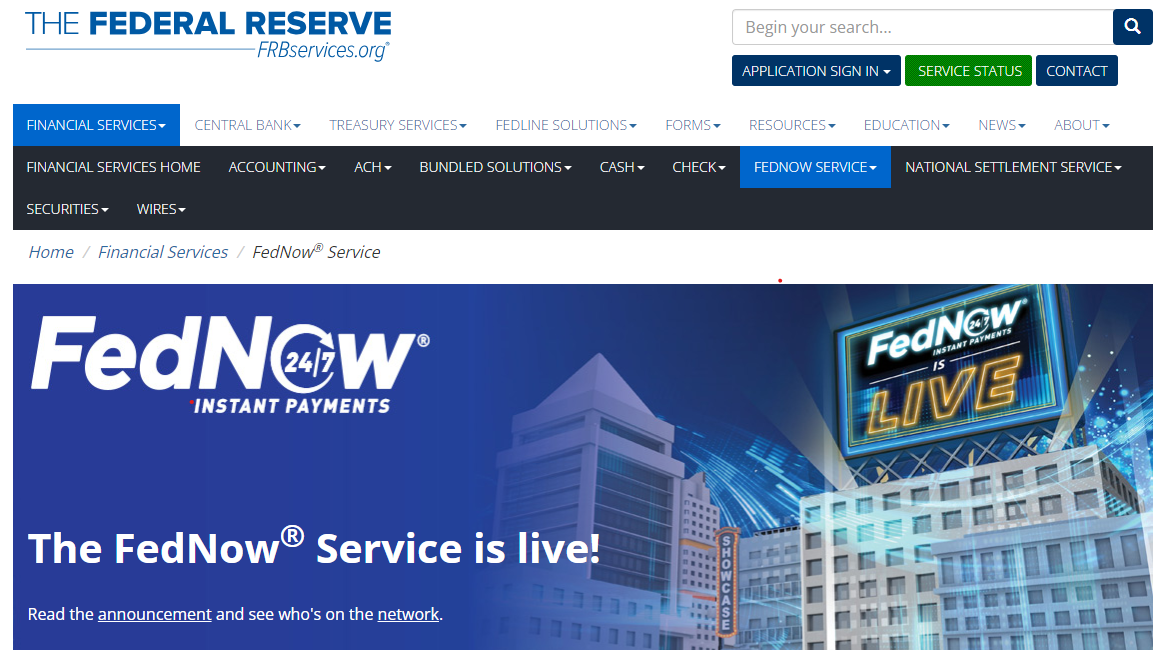In 2019, the Federal Reserve Board announced the development of FedNow. The service was designed to provide a safe and efficient way for banks and other financial institutions to send and receive payments in real time. FedNow was officially launched on July 20, 2023.
The development of FedNow was motivated by a number of factors. First, the rise of digital payments has created a need for a faster and more efficient way to send and receive money. Second, the Federal Reserve wanted to ensure that the United States had a strong and resilient payment system that could withstand shocks to the financial system. Third, the Federal Reserve wanted to promote competition in the payments industry.
FedNow is expected to have a number of benefits for Americans. It will allow consumers to send and receive money more quickly and easily. It will also help to reduce the risk of fraud and make the financial system more resilient.
The transition to FedNow will be gradual. The Federal Reserve plans to gradually onboard banks and other financial institutions to the service. The full rollout of FedNow is expected to take several years.
Impact of FedNow on the financial system:
The Good:
- Faster payments: With FedNow, payments will be settled instantly. This means that you will be able to send money to someone and they will be able to receive it immediately, even if it is the middle of the night or a weekend. This could be helpful for a number of things, such as paying bills, sending money to friends or family, or making online purchases.
- Reduced fraud: FedNow will use a number of security features to help reduce the risk of fraud. This could help to protect consumers from losing money to scams or identity theft.
- Increased competition: FedNow could lead to increased competition among banks and other financial institutions. This could lead to lower fees and better services for consumers.
The Bad:
- Higher costs: Some banks may pass on the costs of using FedNow to their customers in the form of higher fees. This could be a particular concern for consumers who already pay high fees for their banking services.
- Disruption: The transition to FedNow could cause some disruption to the financial system. This could lead to delays in payments or other problems. This could be especially problematic for businesses that rely on timely payments.
- Security Risks: While FedNow will use a number of security features, there is always the risk of fraud or other security breaches. This could lead to consumers losing money or having their identities stolen.
- Privacy Concerns: Some people may be concerned about the privacy implications of FedNow. The Federal Reserve will have access to a lot of data about how people are using the system, and this data could be used for marketing or other purposes.
More About Privacy Concerns:
The Federal Reserve has said that it will not use FedNow data for marketing or other purposes. However, there are still some privacy implications of FedNow that consumers should be aware of.
- The Federal Reserve will have access to a lot of data about how people are using the system: This data could include the amount of money being transferred, the time and date of the transfers, and the identities of the people involved in the transfers. This data could be used to track people’s spending habits and could be a privacy concern for some people.
- The Federal Reserve could share this data with other government agencies: The Federal Reserve has said that it will only share this data with other government agencies if it is required to do so by law. However, this could still be a privacy concern for some people who are worried about their data being shared with the government.
- The Federal Reserve could be hacked: The Federal Reserve is a well-respected institution, but it is still possible that it could be hacked. If this were to happen, the hackers could gain access to the data that the Federal Reserve has collected about FedNow users. This could be a major privacy concern for those users.





